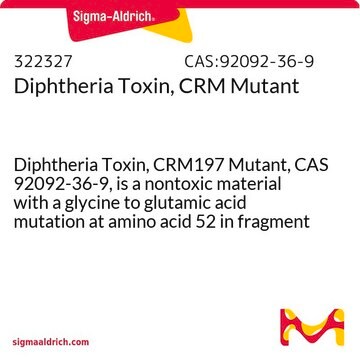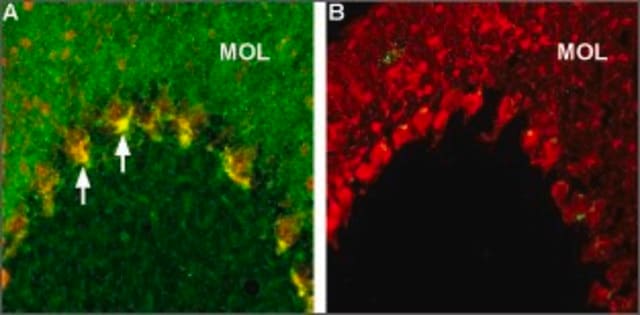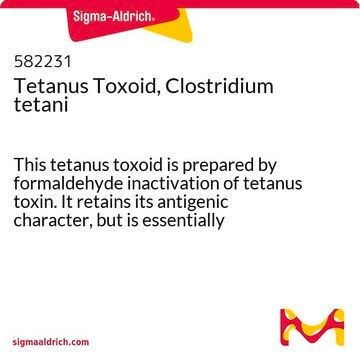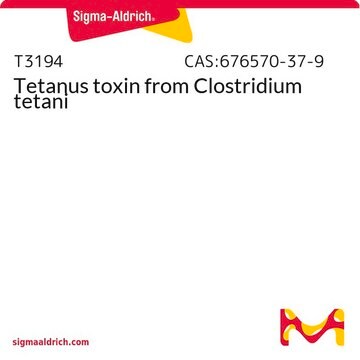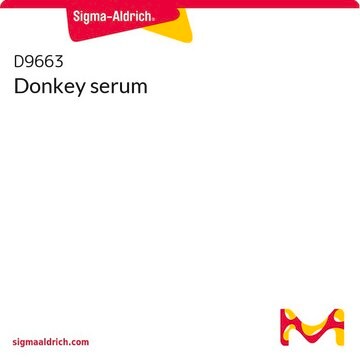D0564
Diphtheria Toxin
from Corynebacterium diphtheriae, ≥98% (SDS-PAGE), lyophilized powder, protein synthesis inhibitor
Synonym(s):
DTx
About This Item
Recommended Products
product name
Diphtheria Toxin from Corynebacterium diphtheriae, lyophilized powder, Product is in unnicked form
Quality Level
form
lyophilized powder
storage temp.
2-8°C
Looking for similar products? Visit Product Comparison Guide
General description
Application
- for microglia depletion to study post-traumatic stress disorder in mice
- intraperitoneally injected in transgenic mice to select the hybrids after fusion of transplanted hematopoietic stem and progenitor cells (HSPCs) during ablation
- to study its effect on eosinophil lineage-committed progenitors in an eosinophil-deficient strain of mice (iPHIL)
Biochem/physiol Actions
Physical form
Reconstitution
Signal Word
Danger
Hazard Statements
Precautionary Statements
Hazard Classifications
Acute Tox. 1 Inhalation - Acute Tox. 1 Oral
Storage Class Code
6.1A - Combustible acute toxic Cat. 1 and 2 / very toxic hazardous materials
WGK
WGK 3
Flash Point(F)
Not applicable
Flash Point(C)
Not applicable
Certificates of Analysis (COA)
Search for Certificates of Analysis (COA) by entering the products Lot/Batch Number. Lot and Batch Numbers can be found on a product’s label following the words ‘Lot’ or ‘Batch’.
Already Own This Product?
Find documentation for the products that you have recently purchased in the Document Library.
Customers Also Viewed
Our team of scientists has experience in all areas of research including Life Science, Material Science, Chemical Synthesis, Chromatography, Analytical and many others.
Contact Technical Service
